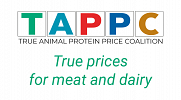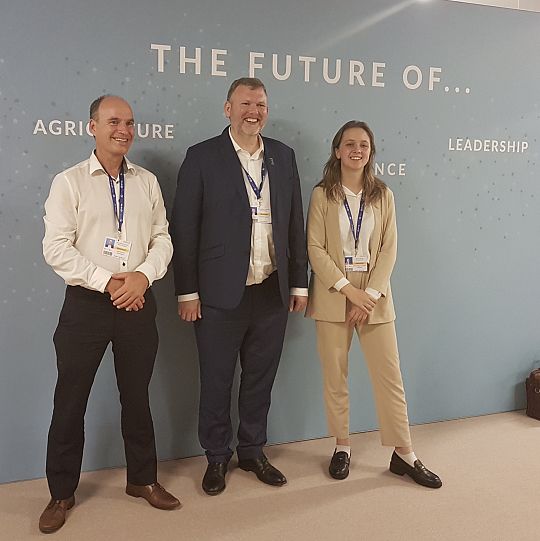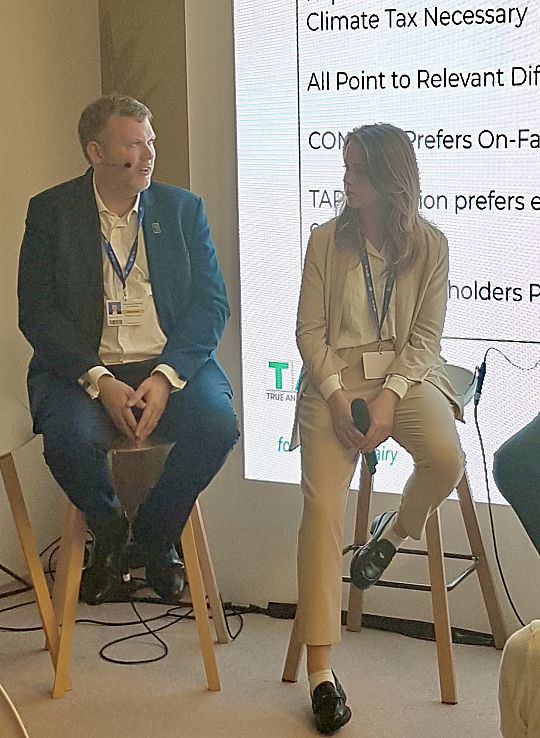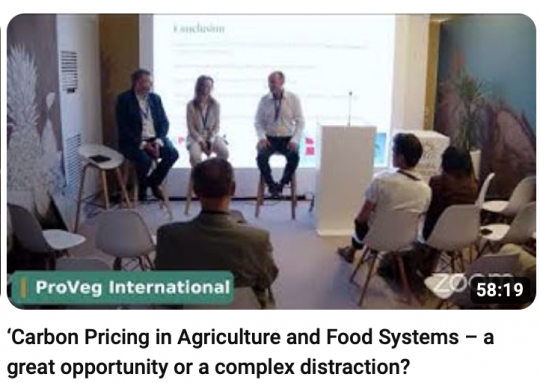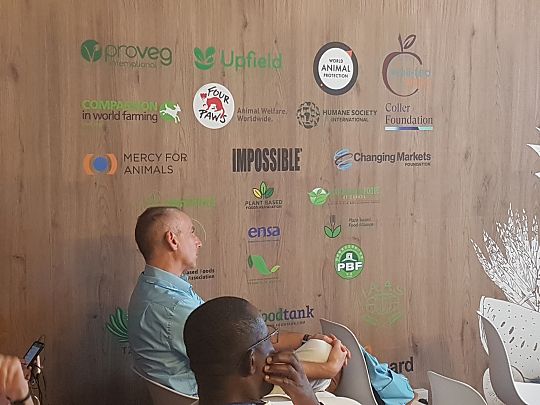COP28 event 'Carbon Pricing in Agriculture and Food Systems'
Today, during the COP28 Climate Conference in Dubai TAPP Coalition organised a side event in the Food4Climate Pavillion, with support of Unilever titled: 'Carbon Pricing in Agriculture and Food Systems - a great opportunity or a complex distraction?’
Panelists were;
Thomas Lingard, Global Head of Sustainability Unilever
Dieuwertje Wallaart, vice chair Dutch Youth Climate Movement
Jeroom Remmers, director TAPP Coalition, founder Carbon Pricing Food Coalition
Unilever and TAPP Coalition are both partners of the Carbon Pricing Leadership Coalition and hope to see more future examples of carbon pricing in agri-food systems, since 1/3 of global GHG emissions comes from this sector and CO2 pricing in energy, industry and transport sectors worked very well, so why not in agri-food systems?
Thomas Lingard said in his introduction: "I was fascinated by the idea of carbon pricing in Agriculture and Food Systems because Unilever is a founding partner of the Carbon Pricing Leadership Coalition (CPLC), hosted by the World Bank. We had many meetings with them about carbon pricing in the energy sector. It struck me that the CPLC is not applying carbon pricing at the agriculture and food sector, while it causes a big chunk of emissions. We know emissions pricing is incredibly effective (..). It should be on the agenda, but how would it work? (...) Why we think this question is interesting for us is because carbon pricing in the sector could be a lever for mainstreaming regenerative agriculture with carbon and biodiversity benefits in the Global South and North. Revenues can be used as a source of income for farmers for agricultural practices like sequester carbon or reduce GHG emissions".
The recording for the event can be seen here (start at minute 6):
The powerpoint presented by Jeroom Remmers can be seen here.
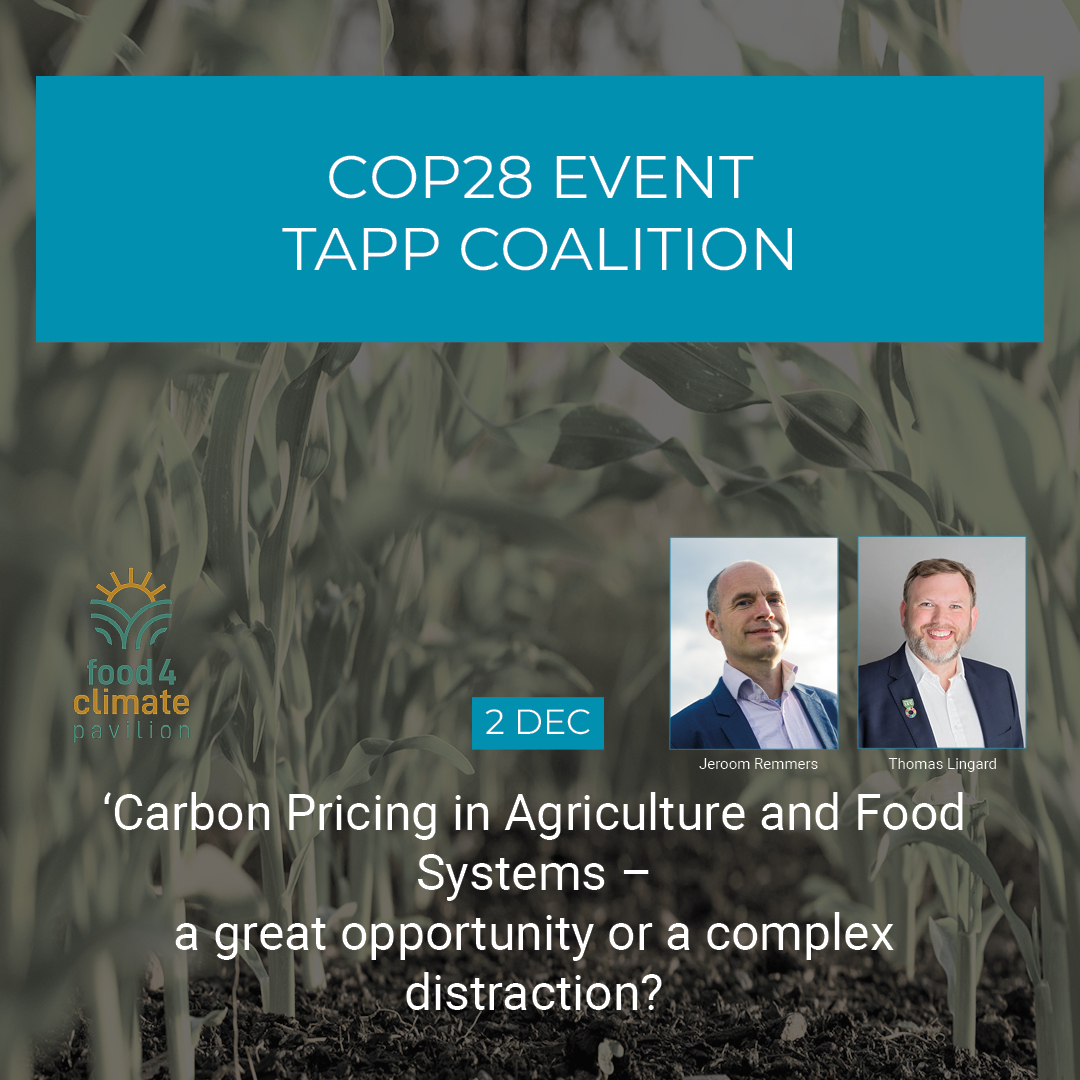
During this panel, Thomas Lingard, Jeroom Remmers with Dieuwertje Wallaart, together with 25 participants in the room discussed the need for Climate Pricing in Food Systems, the pro’s and con’s and suggestions for action.Jeroom Remmers presented a news item about a new report launched 13th November by the EU Com mission about an ETS system in for agriculture and food systems.
The report can be downloaded here. TAPP Coalition Position Paper about the EU Agri-ETS proposal can be read here.
The report presents 5 options for bringing the food sector into a new ETS system. Agriculture and food are the only sectors in Europe without any form of CO2-pricing. The option most supported by EU-stakeholders is the option that slaughterhouses and dairy factories would become part of the emission trading scheme, responsible for reducing GHG-emissions for the food they sell and giving emissions a price. TAPP Coalition supports this option, but also presented other options for carbon pricing agri-food systems, like consumer taxes on meat/dairy and including supermarkets and catering companies in existing CO2-tax systems for the food they sell. Denmark will decide next summer 2024 about introducing GHG-emission taxes for livestock farmers and/or a tax on beef. The panelists and the audience had questions about negative side effects of carbon pricing agri-food systems for farmers in the global north and south, public health and low income groups .
Jeroom Remmers replied with different options to mitigate potential negative impacts, like using tax revenues for rewarding farmers to reduce GHG emissions, increase biodiversity and reduce the livestock numbers. Tax revenues can also be used to compensate low income groups, reduce taxes on food with low climate footprints and generate climate finance for the Loss and Damage Fund.
The COP28 UEA Declaration on Agriculture and Climate signed yesterday by 134 countries which really gives hope that Carbon Pricing Food Systems will be applied more often to realise the Paris Climate goals in 2030-2050 in this sector. TAPP Coalition also hopes revenues from carbon pricing in agri-food systems can generate future climate finance for the Loss and Damage Fund.
Here you can see the press release with a comment by TAPP Coalition and the news about another Declaration initiated by TAPP Coalition that can be signed by non-OECD countries.
TAPP Coalition also hosted a press conference at COP28 this morning about CO2 labeling of food catering at COP28 and CO2 pricing in retail and catering companies in the Netherlands and Europe. Here you can see the press release about it.
